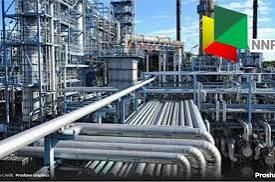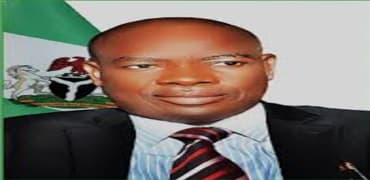Ill-Informed and Sub-Commercial”: NNPCL Slams Early Port Harcourt Refinery Restart, Sparks National Debate
🚨 “Ill-Informed and Sub-Commercial”: NNPCL Slams Early Port Harcourt Refinery Restart, Sparks National Debate
By all accounts, it should’ve been a triumph: a $1.5 billion lifeline pumped into Nigeria’s aging Port Harcourt Refinery. Instead, it’s now shaping up to be another chapter in the country’s long-running petroleum tragedy.
💣 The Big Admission: “We Jumped the Gun”
In a stunning moment of candor, Bayo Ojulari, the Group CEO of NNPCL, has thrown a spotlight on what many insiders already whispered: restarting the Port Harcourt Refinery in late 2024—before it was fully rehabilitated—was a strategic misstep.
“It was ill-informed and sub-commercial,” Ojulari declared, cutting through years of spin with the precision of a scalpel. The statement, delivered at a spirited NNPCL town hall in Abuja this week, pulled no punches.
🛢️ Flashback: A Billion-Dollar Mirage?
It all began in April 2021, when the Federal Government inked a $1.5 billion contract with Italian firm Tecnimont to breathe life into the 210,000 bpd refinery. By December 2023, NNPC's then-CEO Mele Kyari promised 88% completion. In November 2024, the company began trucking out petroleum products.
But by May 2025, silence. Shutdown. Maintenance. Again.
Now, in July 2025, the truth is out: they shouldn’t have turned it on in the first place.
❌ No Sale to Dangote, No Fire Sale at All
Ojulari also flatly denied rumors that Dangote Group was preparing to scoop up the refinery. This comes after his earlier cryptic comment to Bloomberg—“all options are on the table”—sparked speculation of a quiet handover.
Not anymore.
Selling the refinery, he said, would lead to “further value erosion,” and besides, the new roadmap calls for advanced technical partnerships, not privatization.
🎤 Staff Reacts: Applause and Relief
According to NNPCL’s own statement, Ojulari’s declaration was met with thunderous applause from staff at the town hall. A workforce long mired in confusion and disillusionment was—at least momentarily—buoyed by a rare dose of realism and direction.
The meeting featured progress reports from all major sectors—upstream, downstream, gas, power, finance, and new energy—with executives admitting past errors and laying out “a clear roadmap.”
🧮 Money Pit: The $18 Billion Black Hole
But here’s the part that makes stomachs churn: according to watchdog reports and analyst estimates, Nigeria has dumped over $18 billion into refinery rehabilitation projects over the last two decades—with almost nothing to show for it.
In 2007, Obasanjo’s administration tried to sell the refineries for $750 million. The deal was killed.
In 2009, NNPC said it spent $20 million on Kaduna Refinery’s TAM.
By 2023, a House of Reps report pegged total rehab costs since 2010 at over ₦11.3 trillion, plus $593M, €4.9B, and £3.5B.
Each TAM (Turn Around Maintenance) came with fanfare and promises. Each one failed.
🧓 Obasanjo & Dangote: “We Told You So”
Former President Olusegun Obasanjo and Aliko Dangote have both blasted the idea that these refineries will ever truly work again under government management.
“NNPC knew they could not do it,” Obasanjo said earlier this year. “When people were ready to buy, they blocked it... in a civilized society, some of those people should be in jail.”
Dangote, whose own $20+ billion refinery is nearing full steam, echoed the sentiment. “These state-owned refineries may never work again,” he said pointedly, adding that the government's refusal to sell them was why he built his.
⚖️ A System Built to Fail?
Beyond the billions lost, the deeper issue is this: Nigeria’s refinery model is broken. A bloated, politicized NNPC. No accountability. A revolving door of TAM contractors. And a national addiction to “fixing” what everyone knows is unfixable.
Ojulari’s moment of truth is a rare glimmer of hope. But realism alone won’t produce refined fuel. Nigerians want results.
🔮 What Now?
NNPCL says it will inject another $500 million into the refineries, and that it’s exploring technical partnerships rather than throwing in the towel. But even that’s optimistic.
With 2027 elections approaching and a restless population still burning imported fuel, time is running out.
Will Ojulari’s roadmap break the curse—or is this just the latest act in a very expensive play that never ends?
One thing’s clear: the refinery rehabilitation drama is Nigeria’s most expensive never-ending story.
By Haruna Yakubu Haruna


















